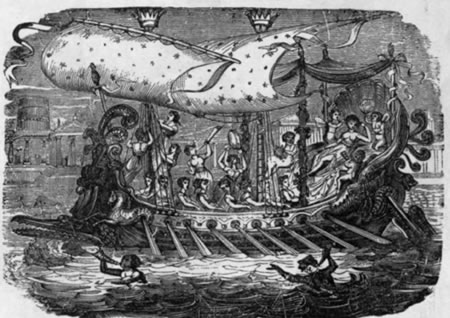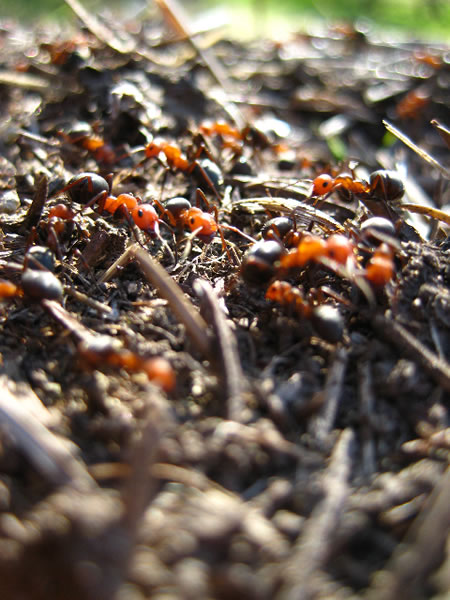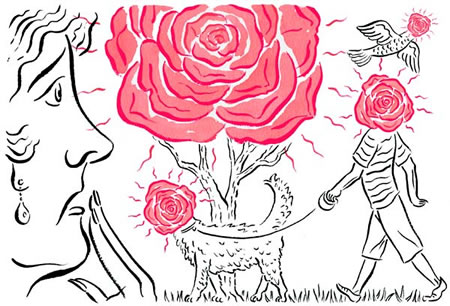Experience design, recollection, fragrance and holistic presentation

“When Cleopatra first travelled to meet Mark Antony, her arrival was announced by the pungent perfumes before her barge was in sight.”
The History of Perfumes
What counts in the mind and memory, scent first — aptly described?
When did you first smell: ammonia? What happened?
Contemplating the concept of pungent — and perfume — I find myself (going back and digging in) to see what more could be learned, or applied, to the word. What does it really mean? While scent might be evanescently floating in the mind of the scenteur words that describe them might more so be physical in character, a more holistic vision of how scent could be experienced. Pungent, to character, is etymologically linked perhaps to the fist — a fragrance with punch.
pungent
1590s, “sharp, poignant” (of pain or grief), from L. pungentem (nom. pungens), prp. of pungere “to prick, pierce, sting,” related to pugnus “fist” (see pugnacious). Meaning “having powerful odor or taste” first recorded 1660s. Literal sense “sharp, pointed” (c.1600) is very rare in English, mostly limited to botany.
How this all began for me was a daily mailing from the Oxford English Dictionary, whose more discerning character lies in the team that has — the last several hundred years, gathered up scraps of references in building out the literal history of a word. They sent me:
pungency, n.
Brit. /pn(d)()nsi/, U.S. /pndnsi/ [< PUNGENT adj. or its etymon classical Latin pungent-, pungns: see -ENCY suffix. Compare post-classical Latin pungentia fact of piercing, penetration (mid 13th cent. in a British source). Compare later PUNGENCE n., and also POIGNANCE n., POIGNANCY n.]
The quality of being pungent.
I was thinking about the idea of a scent that punctures the consciousness, something that breaks the train of thinking — it’s surprising, alarming, view-cracking. It’s a jolt. But the idea of the pungent expanding, as a definition, it goes places to deepen the connection to soulful experience. Like:
1. Intensity of grief or distress; hurtful or wounding quality; poignancy. Now rare.
1649 BP. J. TAYLOR Great Exemplar Pref. §19 The pungency of forbidden lust is truely a thorne in the flesh. 1664 G. HAVERS tr. T. Renaudot et al Gen. Coll. Disc. Virtuosi France1701 L. SMITHEvid. Things not Seen ii. 46 In Hell there is nothing but pure unmingled Misery; no Rebatement of the Edge and Pungency thereof. 1776 W. J. MICKLEIntrod. in W. J. Mickle tr. L. de Camoëns Lusiad p. cxvi, Camoens beheld it with a pungency of grief which hastened his exit. 1864 H. W. ADAMS Bk. Job in Poetry p. xvi, What gives the bitterest pungency to human sorrow, is to feel it is undeserved. 1897 F. ROGERS Folk-stories Northern Border 191 This circumstance gave a pungency to the grief and feelings of every sympathetic heart. II. lxviii. 411 Anger..serves to check the pungency of grief, as fear and boldness come to the assistance of flight.
Or the more ancient interpretation of the punctured jab — again, perhaps into the consciousness:
2 lit. The property of pricking or piercing; the fact of having a sharp point or points. Obs.
1654 W. CHARLETON Physiologia III. xii. 308 The Atoms of Heat may..prick as sharply, and penetrate as deeply, as the Angles of the smallest Pyramid imaginable. To which may be conjoyned, that the Atoms of Cold..are also capable of Pungency and Penetration. 1664H. POWER Exper. Philos. I. 52 Oblong particles, angular and pointed, which may perchance exstimulate the Stomach, (by its netling pungency) like a heap of needles. 1732J. ARBUTHNOT Pract. Rules of Diet iv. 407 Any Substance which by its Pungency can wound the Worms.
And extending that sentience crossing channels, to taste:
3. a. The property of having a pungent smell or taste; (more widely) a stinging, irritant, or caustic quality.
1663 J. BEALE Let. 4 Jan. in H. Oldenburg Corr. (1965) II. 3 And from apple, peare, cherry, plum &c yt yields good liquor; It must ever flowe wth an austere pungency. 1676N. GREW Exper. Luctation i. §11 The pungency of Ginger lyeth in a sulphureous and volatile Salt. 1756 F. HOME Exper. Bleaching128 They have a saline taste, with a considerable degree of pungency. 1774 O. GOLDSMITH Hist. Earth VI. 295 The violent pungency of the slimy substance… If the smallest quantity but touch the skin..it burns it like hot oil. 1856 E. K. KANE Arctic Explor. I. xiv. 155 The air had a perceptible pungency upon inspiration. 1898 T. C. ALLBUTT et al. Syst. Med. V. 126 Carbonate of Ammonia should be..combined with syrup of tolu, liquorice or treacle, to soften its pungency. 1947 S. J. PERELMAN Acres & Pains (1995) i. 10 On a fine night..I can smell the sharp pungency of a hot corned-beef sandwich all the way from New York. 1994 Equinox Aug. 63/2 A nasty bitter-almond pungency lingered on my tongue. 2000 J. CUMMINGS World Food: Thailand 56 Thai restaurateurs harbour the idea that the delicate faràng (western) palate cannot handle the heat or pungency [of yam].
b. A stinging sensation, esp. in the mouth or throat. Obs. rare.
1792 W. WITHERING Bot. Arrangem. Brit. Plants (ed. 2) III. 295 [Agaricus lactifluus] abounding with white milky juice, at first mild, but at length leaving a slight pungency in the throat.
And finally the caustic bite of bracing intelligence — in the incisive strike of the well-made idea.
4. Keenness of effect on the mind or intellect; incisiveness or force (of argument); trenchancy, asperity (of criticism or censure); sharpness, bite.
1665 E. WATERHOUSE Gentlemans Monitor xviii. 144 Yet every incongruous marriage may not fall under the pungency of the censure in the full of what is thus expressed. 1670W. ANNAND Pater Noster V. iii. 192 The pungency of Christian Doctors Arguments. 1701Life Plato in M. Dacier Plato Abrig’d I. 61 Those Discourses which instead of carrying pungency and Reproof in ’em, are only calculated to sooth and please, are not becoming a Wise Man. 1800 L. D. CAMPBELL Life & Wks. Hugh Boyd I. 177 His prevailing excellencies are the precision and clearness of his reasoning, the vigour, pungency, and terseness of his style. a1862 H. T. BUCKLE Hist. Civilisation Eng. (1869) III. ii. 110 The large amount of truth contained in this bitter taunt increased its pungency.1926 Amer. Mercury July 285/1 The new floor-walker editorial policy, with its intolerance of any pungency or saltiness whatever, have destroyed journalism. 1994 H. BLOOM Western Canon II. vi. 156 Order and tranquility are nevertheless now permanently difficult to achieve, and the passage retains its pungency.
There’s a bridging here, to the notion of how the word for a certain scent and nosed experience extends spherically into other measures of sensation, physical, even psychic connection.

The red carpenter ant, bite piercing as it is, uses a vinegar-like acid to sting the attacker — and during battle, you can scent it — pungent. (Girvin)
My take, it’s the way scent works. It crosses channels of experience. It doesn’t just thrive in the scenting of mind and memory, but it informs larger layers of experience and understanding. I’d look to the bridge of a kind of synaesthetic holism in thinking about the concepts of scent, place, recollection. The pierce of scent was something that bantered and rattled the allergenic corps more than a decade back — I note:
“College in Minnesota Bans Pungent Perfumes
November 03, 1994| Reuters
MINNEAPOLIS — The University of Minnesota’s School of Social Work said Wednesday that it has banned students and faculty from using perfumes, colognes, shampoos and other smell-good products that might trigger allergic reactions.
“Anything that is strongly scented” is not permitted, said Nancy Johnston, associate director of the graduate school. “We’re trying to make people know there are products out there which are less strongly scented.”
Or, on a par with smoking, I’d offer:
Noses Out Of Joint Over Pungent Perfumes
June 27, 1991|By George Papajohn.
Father John J. Sullivan would like to save souls, but he`d prefer that you forget about Eternity when you come to church.
Jimmy Rohr wants you to enjoy a meal at Jimmy’s Place, but if you’re going to dine over his white table cloths, forget about wearing White Linen.
Asserting what they see as their right not to be assaulted by scents, these Chicago-area residents are part of a small but increasingly vocal segment of society that could be called anti-aroma.
They’re taking a minority stand, yet finding support even from those who don’t suffer from allergies and asthma but consider perfumes intrusive.
Can no-perfume sections be far behind?
Probably not.
“It’s been proven that smoking can cause harm to yourself and others,” said Amy Solomon, a top aide to a New York state legislator who has studied the issue. “It hasn’t been proven that perfume can cause harm to yourself or others. We’ve seen the reactions, but it hasn’t been proven it’s come from perfume.
But other than that it’s the same issue of freedom of choice.”
It’s not quite a movement yet, and may never be. But there`s something in the air these days.
That closure is insightful — “there’s something in the air these days” (that being the 90s).

Robert St. James, the New York Times
To another notation, in her essay, a “Pungent Life,” Jane G. Andrews observes,
“I am in my kitchen smelling dirt. Three new plants — a white kalanchoe and two red begonias — sit on a stand at my window. It is April, nearly a decade ago, and I have bought them because it is finally spring. I admire their small, dense flowers and green, waxy leaves.
But I hadn’t planned on their powerful, raw smell. Working around the house, I try to think about something else. When I go upstairs, the smell follows me, earthy, pushy, almost wet. I wonder how it is that I can smell three small houseplants on the floor below.
That afternoon, at the grocery, I can’t shake their dank odor. Could the smell somehow have gotten into my clothes? A day later, miles away at my doctor’s office in Manhattan, I am shocked that it smells there, too. But she has no potted plants.
I finally get it. This assertive smell, my uninvited companion for almost two days, is inside my head, not out. Mortified, I think I must smell. Talking to friends, I cover my mouth with my hand. I brush my teeth more often, swish mouthwash compulsively. But my husband says I smell fine — no bad breath. I finally call my doctor.
I discover that I suffer from phantosmia. “Osmia,” from the Greek osme, means “smell.” Coupled with “phanto” (like “phantom”), it refers to an illusory sense of smell. I smell a smell when no odorant is present.
That idea of scenting, recollection and the phantom scent, the fragranced hallucination is akin to certain forms of madness, “
Dr. Donald Leopold, chairman of the department of otolaryngology at the University of Nebraska Medical Center in Omaha, has studied smell disorders for 30 years. In phantosmia, Dr. Leopold says, both the upper nasal passages and the brain play a part, especially the brain, “where the actual smell perception is generated.”
Almost always the patient has lost some ability to smell. Dr. Leopold says that the brain, “which has a propensity to make smell,” overcompensates by offering up odors, usually disagreeable ones, that may have existed previously but were suppressed — certain “traffic cop” neurons, which had worked to exclude such odors, turn off.”
This whole exploration, aside from the opening notations from the OED, was added as an element of examination in the appearance of this blog, another that I happen to watch with scrupulous attention: The Hot Word (from Dictionary.com)
The blog, in its entirety is outlined below. I might point out that the listing of words that the blogger notes are hardly the tip of the iceberg when it comes to phrasing that link to scent. In examining the word, “smoke” — I found this was just the beginning.
Smell, an expansive vocabulary indeed:
“The common cholesterol drug Lipitor was recently subject to a recall due to reports from consumers about a “musty” odor associated with the bottles. We aren’t interested in the drug — this post concerns stink, stench, aroma. Smell may be the hardest sense to describe in words, which is why we are eager to take a whiff.
The sense of smell is known as olfaction and functions through theprocess of chemoreception. The particles that actually come into contact with your nose and cause a smell are odorants. (Whether fragrant or foul.)
Language typically conveys sight and sound more easily than taste and smell. Think about how many words express qualities of vision versus the other senses. We often have to rely on imagery in order to express our olfactory intention. If you say “That smells like rotten apples,” odds are that a vivid picture appears in your mind’s eye.
“Musty” conjures associations like winter sweaters that have been packed away for months or an attic needs to be aired out. The word is used to describe odors that suggest the presence of mold. This makes sense when you consider its origin. Musty is likely a variant of the word “moisty,” or “moist.”
So, why is the stench coming from Lipitor bottles?
The raunchy odor is believed to be coming from the bottles, not the drug. It’s thought to be caused by a chemical that is found in a wood preservative used on the pallets on which the drug was shipped. The chemical is referred to as TBA, which is short for tribomanisole, not “To be announced.”
Apologies if this exploration has caused you duress while utilizing your imaginary nose. Just be glad that you aren’t afflicted with parosmia, a neurological condition where things smell worse than they should.”
Scent is profoundly robust in the consciousness of how sensations — living life — are experienced. The scenting of the complex tens of thousands of notes, fragrances, that waft into the memory every day are either observed, attention-gathered, or discarded; the interweaving of history and context in the origination of words and the sensuality of scent is long reaching and richly complex. Just like perfume.
t i m | nyc
–––
UNDERSTANDING THE CONCEPT OF SCENT, BRAND AND EXPERIENCE
https://www.girvin.com/blog/?tag=scent
the reels:http://www.youtube.com/user/GIRVIN888
girvin blogs:
http://blog.girvin.com/
https://tim.girvin.com/index.php
girvin profiles and communities:
TED: http://www.ted.com/index.php/profiles/view/id/825
Behance: http://www.behance.net/GIRVIN-Branding
Flickr: http://www.flickr.com/photos/tgirvin/
Google: http://www.google.com/profiles/timgirvin
LinkedIn: http://www.linkedin.com/in/timgirvin
Facebook: http://www.facebook.com/people/Tim-Girvin/644114347
Facebook Page: http://www.facebook.com/pages/Seattle-WA/GIRVIN/91069489624
Twitter: http://twitter.com/tgirvin